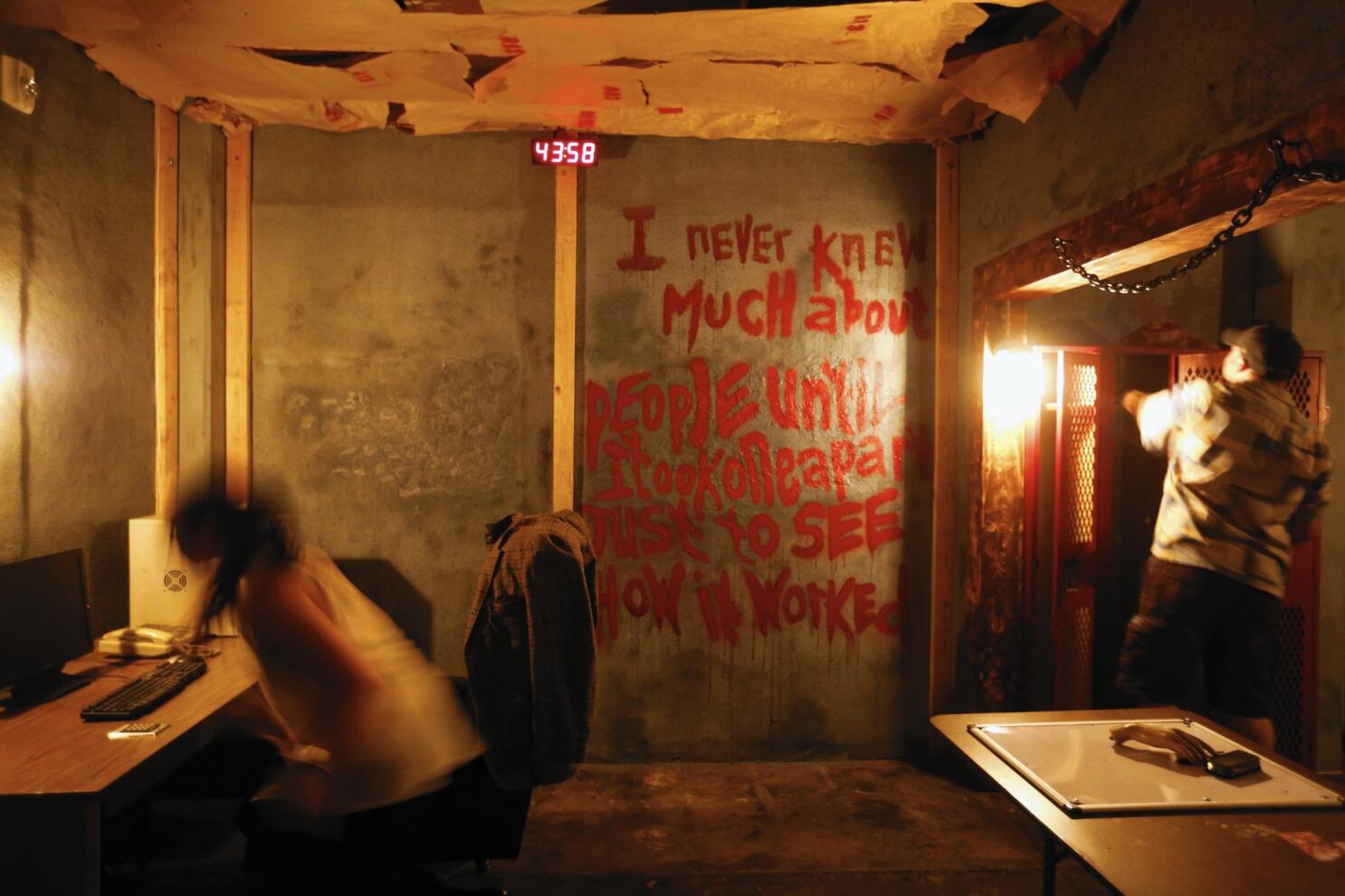Minneapolis Escape Room-- Exciting Challenge Difficulties for All Ages
Minneapolis Escape Room-- Exciting Challenge Difficulties for All Ages
Blog Article
Group Approaches: How to Work together Effectively in an Escape Room
Browsing the complexities of a getaway room necessitates even more than plain excitement; it needs a well-coordinated technique grounded in clear communication, tactical function assignments, and adept time monitoring. Groups should actively pay attention per member's insights, appoint functions that line up with individual toughness, and preserve regular check-ins to ensure emphasis and avoid redundancy. By fostering a setting that values communication and adaptability, groups can dramatically enhance their effectiveness and success rates. The subtleties of these techniques can change the experience, yet exactly how exactly can they be applied to make the most of the possibility for success?
Establish Clear Communication

To facilitate clear communication, it is crucial to assign a main factor of contact for info circulation. Quick, focused updates from each team member can maintain the team informed without overwhelming them with info.

Designate Roles Purposefully
While clear interaction sets the structure for effective synergy, designating roles purposefully makes sure that each staff member's strengths are made use of efficiently. In an escape space scenario, the time-sensitive and intricate nature of difficulties requires a well-organized strategy to task delegation. By recognizing and leveraging individual expertises, teams can maximize their problem-solving abilities and enhance general efficiency.
First, examine the unique skills and features of each individual. Someone with an eager eye for detail may succeed in locating covert items, while a sensible thinker might be much better matched to resolving challenges. It's just as important to have a leader who can supervise progression, take care of the timeline, and make decisive calls when needed. This duty often needs strong business and social abilities.
Second, make certain that roles are flexible and adaptable. As brand-new obstacles arise, the group must be able to pivot, reallocating tasks as required. This adaptability helps maintain momentum and prevents traffic jams that could occur due to rigid role jobs.
Inevitably, a tactical method to role assignment not just optimizes the toughness of each group member however also fosters a natural atmosphere, driving the team in the direction of an effective getaway.
Utilize Diverse Skills
Recognizing and using the diverse abilities within your group can considerably boost your performance in an escape space. Each team participant brings special strengths to the table, and properly leveraging these capacities can accelerate problem-solving and boost general performance. A group member with solid analytical skills could stand out at figuring out intricate codes or patterns, while an additional with keen observational capacities might rapidly identify surprise clues that others may ignore.
Reliable communication is essential to using these varied abilities. Encourage staff member to articulate their understandings and concepts promptly, guaranteeing that all prospective options are taken into consideration. This inclusive approach fosters a dynamic atmosphere where imagination and essential reasoning can flourish. Additionally, assigning tasks that align with each member's strengths can avoid bottlenecks and guarantee that development is constant.
Additionally, variety in skills typically equates to diversity in thinking designs, which is very useful in a retreat space setting. While some obstacles might need logical thinking and accuracy, others may take advantage of creative and association of ideas. By recognizing and leveraging this variety, teams can address a more comprehensive variety of difficulties much more effectively, therefore boosting their possibilities of an effective getaway.
Manage Time Efficiently

Identify noticeable challenges and separate jobs based on group members' toughness, guaranteeing that no one is idle. This technique can assist maintain the team concentrated and stop time from slipping away undetected.
In addition, stay clear of passage vision. If a puzzle is taking too long, rotate employee or proceed to an additional challenge, returning later with fresh viewpoints. Communication is vital-- maintain every person updated on fixed challenges and continuing to be jobs to prevent redundant initiatives.
Finally, use any type of hints or clues sparingly yet strategically - best escape room. Recognizing when to ask for assistance can conserve valuable time. By sticking to these time management concepts, groups can substantially improve their opportunities of a successful and satisfying retreat area experience
Debrief and Mirror
Representation is a necessary element of group advancement and improvement in the context of escape areas. Once the obstacle is completed, whether effectively or not, it is crucial for the team to take part in a structured debriefing session. This process allows staff member to evaluate their performance, recognize staminas, and determine areas for enhancement.
Begin the debrief by reviewing what went well. Highlight certain instances of Related Site effective communication, problem-solving, and collaboration. Acknowledging these favorable behaviors strengthens them and encourages their repeating in future difficulties.
Review minutes of confusion, miscommunication, or ineffective methods. Urge an open and useful discussion where team members can share have a peek at these guys their viewpoints without worry of criticism.
Verdict
In conclusion, effective cooperation in a getaway area is based upon clear communication, tactical function assignments, the reliable usage of diverse abilities, and skilled time monitoring. By producing a natural and flexible group environment, the possibility of successfully addressing puzzles and accomplishing the objective of leaving the room is substantially improved.
Report this page